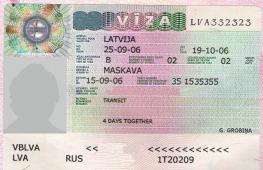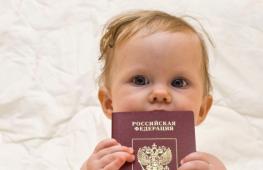Second citizenship legislation
Russian law contains rather ambiguous regulation of issues related to second citizenship. On the one hand, it is not prohibited and people can freely acquire citizenship of other states, on the other hand, only dual citizenship is expressly allowed, based on international agreements ratified by the Russian Federation. And since 2014, a new law has established the obligation to report the right to live in a foreign country or obtain a foreign passport. Such a notification to government agencies about a second citizenship allows the state apparatus to control migration processes and track emigration.

According to the media and researchers, the scale is significant. And they significantly exceed the data of the outflow of the country's residents voiced by Rosstat. Real figures are 3-4 times higher than the official ones. And this is not surprising: people want a better life, and in the conditions of a progressive crisis, constant pressure from the authorities and outright lawlessness, where a person does not feel protected, but only oppressed by the state, only a limited circle of individuals close to power structures can live well. Therefore, it is quite understandable that Russians want to leave the country or get a “just in case” opportunity to move quickly and without hindrance.
Second citizenship legislation
 The law in the Russian Federation regulating issues related to second citizenship is rather ambiguous. For example, the acquisition of Russian citizenship is possible only in case of renunciation of the previous one. The naturalization procedure provides for the filing of a formal renunciation of any other civil status. Only if there is confirmation from the competent authorities where the refusal was submitted, one can apply for a passport of a citizen of the Russian Federation. But at the same time, it is possible to acquire citizenship of other countries, already having the legal status of a citizen of Russia, without hindrance. Of course, unless otherwise provided by the process of obtaining a passport of a foreign state.
The law in the Russian Federation regulating issues related to second citizenship is rather ambiguous. For example, the acquisition of Russian citizenship is possible only in case of renunciation of the previous one. The naturalization procedure provides for the filing of a formal renunciation of any other civil status. Only if there is confirmation from the competent authorities where the refusal was submitted, one can apply for a passport of a citizen of the Russian Federation. But at the same time, it is possible to acquire citizenship of other countries, already having the legal status of a citizen of Russia, without hindrance. Of course, unless otherwise provided by the process of obtaining a passport of a foreign state.
Thus, obtaining Russian citizenship as a second one is illegal, and becoming the owner of a second status, being in legal connection with the Russian Federation, is possible without any problems.
The current law says that in the legal field, dual status can be acquired only on the basis of intergovernmental agreements concluded by Russia. However, today there are not many of them and an increase in their number is highly doubtful. The legislation does not provide for other cases, however, and does not establish any liability for. In this case, the principle "everything that is not prohibited" is allowed. Moreover, the law and representatives of the authorities repeatedly indirectly or directly point to such a possibility for Russian citizens. Thus, amendments to regulations adopted in 2014 established the need to notify the competent state bodies dealing with migration issues and the implementation of the state migration policy about a person's second citizenship, residence permit or other residence permit in a foreign state. On the one hand, such norms infringe on the rights of citizens and drive people into even tougher limits, on the other hand, they legislate the conditional possibility of a person having a second passport.
Why notify
Of course, a conscientious citizen, accustomed to analyze, has a natural question: why is it necessary to submit a notification of his second citizenship. It's about total control and accountability. The state wants to know about all the nuances of the life of members of society. This makes it easier to control and correct their behavior. In addition, the belief that any foreign state is a potential enemy does not contribute to the trust of its inhabitants, even if they are citizens of the Russian Federation. The bottom line is simple: individuals who have not one, but two or more official legal ties with different countries, are denied access to key positions in the state apparatus, electoral and judicial systems. Such restrictions are related to the fact that the acquisition of a second citizenship is associated with the maintenance of the interests of the state by individuals. The Russian authorities doubt that their citizens will not act for the good of another country.
What to report
 Contrary to popular belief, the law prescribes the need to report not only about the second citizenship of individuals, but also about a number of other rights received in foreign states. These include the right to temporarily or permanently reside in the territory of another country.
Contrary to popular belief, the law prescribes the need to report not only about the second citizenship of individuals, but also about a number of other rights received in foreign states. These include the right to temporarily or permanently reside in the territory of another country.
In fact, the law speaks of the need for notification of a permanent right of residence, but does not clearly answer the question of which documents can confirm it. Practice shows that state bodies also require to declare documents that are provided for a certain period and require extension. Obviously, it is necessary to notify the state authorities when applying for a residence permit or the right to permanent residence. But an analogue of a residence permit in some states requires a systematic extension, is it worth reporting it to government agencies? There is no clear answer, and the employees of the department, which is not surprising, interpret any disputable situation in favor of the need to submit an appropriate application.
Who should report and when
A person who has acquired the right to reside in another country, confirmed by the relevant document, is required to submit a notification of the presence of a second citizenship. For minors and incapacitated persons, their legal representatives (parents, guardians, trustees) must declare. 60 days are given for notification from the date when the documents were purchased.
No application is required yet from persons who permanently reside outside the Russian Federation. When returning to Russia, such persons are given a one-month period to submit an application of the appropriate content.
Whom to notify
 The law defines not only the obligation, but also the mechanism for notifying state bodies of the presence of a second citizenship. The application is submitted to the territorial agency for migration issues of the Ministry of Internal Affairs of the Russian Federation (previously these functions were performed by the FMS).
The law defines not only the obligation, but also the mechanism for notifying state bodies of the presence of a second citizenship. The application is submitted to the territorial agency for migration issues of the Ministry of Internal Affairs of the Russian Federation (previously these functions were performed by the FMS).
This can be done by personally contacting the state agency for migration issues, or by sending a notification by mail. In this case, the date of submission of the documents will be considered as the deadline for submission.
It is recommended that notification be sent by registered mail with notification. In this case, it is less likely that it will be lost, and there is also evidence of sending and receiving the postal item by the addressee.
What information needs to be submitted
The notice is fairly easy to fill out. The form, which can be found on the Internet and downloaded, will require the indication of:
- surname, name, patronymic (if any);
- dates and places of birth;
- place of residence or address of actual residence;
- passport data (Russian passport and a new one received or a document for the right to reside);
- date and grounds for acquiring the right of permanent residence abroad;
- information about the refusal of a foreign residence permit or passport, or data on their renewal.
Copies of internal and foreign passports (or other document, the acquisition of which granted the person the right to reside in another country) should be attached to the completed notification form.
A responsibility
The law provides not only the obligation of Russians, but also responsibility. So, for untimely notification, an administrative penalty in the form of a fine is provided. And for failure to notify the law already prescribes criminal liability. It can be expressed in the imposition of penalties on the guilty person (up to 200 thousand rubles or in the amount of an annual salary) or even in the appointment of corrective labor.



